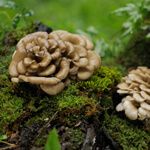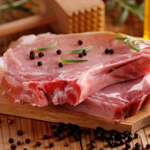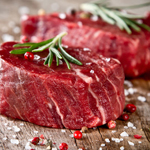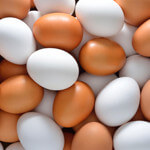 The maitake, also known in English-speaking countries as the hen-of-the-woods, is a large, earthy-brown mushroom that grows at the base of trees, especially oaks. It is native to northeastern Japan and certain parts of North America, and – along with shiitake – is one of Japan’s major culinary mushrooms. It is equally popular in China, where it has been used in traditional medicine for centuries due to its alleged healing properties.
The maitake, also known in English-speaking countries as the hen-of-the-woods, is a large, earthy-brown mushroom that grows at the base of trees, especially oaks. It is native to northeastern Japan and certain parts of North America, and – along with shiitake – is one of Japan’s major culinary mushrooms. It is equally popular in China, where it has been used in traditional medicine for centuries due to its alleged healing properties.
The maitake is one of the healthiest mushrooms in the world, and its popularity in the West has blossomed of late thanks to ongoing research into its nutritiousness.
List of Health Benefits
Cancer-fighting properties – Ongoing research with human cancer patients has shown that a specific portion of the maitake mushroom, called the “MD-fraction,” can inhibit tumor growth. Maitake also enhance the activity of cells, thereby increasing the production of interleukins (immune cells) that are know to prevent cancer growth and can even improve the effects of chemotherapy.
Immune-boosting properties – Maitake contain polysaccharide fibers called beta-glucans that stimulate the production of neutrophils, T-cells, and macrophages (white blood cells). These cells help our immune system to combat illnesses in a rapid and efficient manner, remove cellular debris, and hasten our recovery from tissue damage.
Lowers blood sugar levels – According to a 1996 study by two researchers at the Kobe Pharmaceutical University in Japan, mice that regularly consumed maitake experienced a greater decrease in blood sugar levels than the control group. The researchers concluded that a polysaccharide found in maitake, called the “X-fraction,” has the ability to decrease insulin resistance, thus increasing insulin sensitivity. This fact, coupled with maitake’s low glycemic index score, makes it a great food for diabetic and prediabetic individuals.
Reduces blood pressure – A 2002 study by researchers at the Georgetown University Medical Center in Washington DC showed that hypertensive rats that were fed maitake mushroom powder experienced a considerable decrease in blood pressure compared to the control group. A similar result was seen in a separate study, whereby maitake lowered the blood pressure of rats from 200 to 115 millimeters of mercury (mm Hg) in just four hours.
Weight loss properties – One 100 gram serving of raw maitake contains a mere 37 calories and virtually no fat. The same amount also contains 2.7 grams of dietary fiber, which is 11 percent of an adult’s recommended daily intake (RDI). Fiber is a plant food that can absorb water from the large intestine, which induces a feeling of fullness and prevents us from overeating. For this reason, individuals who are trying to lose weight should always favor fiber-rich foods like maitake.
Lowers cholesterol – A 2001 study by researchers at the Obihiro University of Agriculture and Veterinary Medicine in Japan showed that rats that were fed powdered maitake and shiitake experienced a noticeable drop in cholesterol compared to the control group. They attributed this decrease to properties in the mushrooms that increase fecal cholesterol excretion.
Rich in trace nutrients – 100 grams of raw maitake also contains 1.9 grams of protein (four percent of our RDI), various B-vitamins (which are needed for cellular metabolism), two percent of our RDI of magnesium and iron, three percent of our RDI of manganese and selenium, and between five and seven percent of our RDI of zinc, potassium, and phosphorous. The same amount also contains an impressive 0.3 milligrams of copper (13 percent of our RDI), and small amounts of omega-6 fatty acids, which are needed for brain function.
Maitake As a Supplement
If you dislike the taste of mushrooms, you’re likely to dislike the taste of maitake as well. Fortunately, as continued research into maitake cements its reputation as a superfood, more supplement manufacturers are starting to take notice. Nowadays, you can find maitake supplements in health food stores worldwide, and these capsules can help us bypass the mushroom’s unpleasant taste. Remember, however, that certain active properties are lost when a food is consumed in supplement form.






